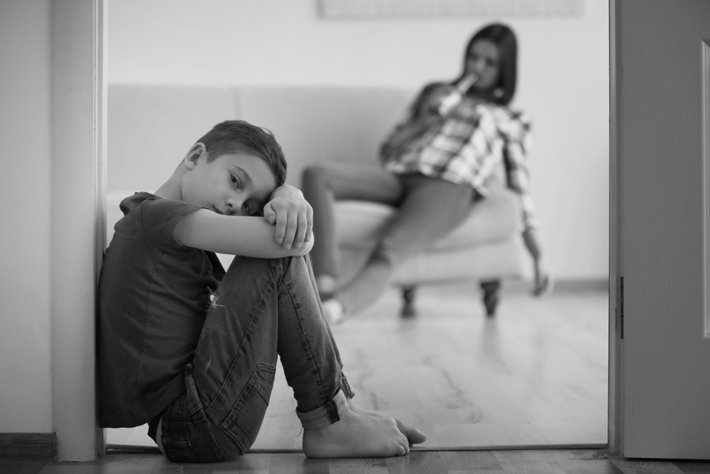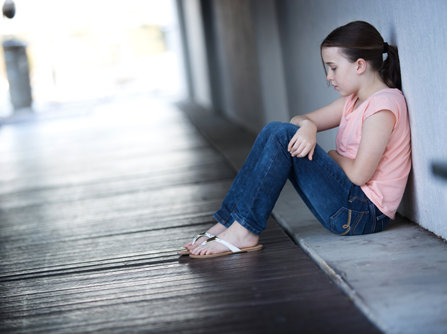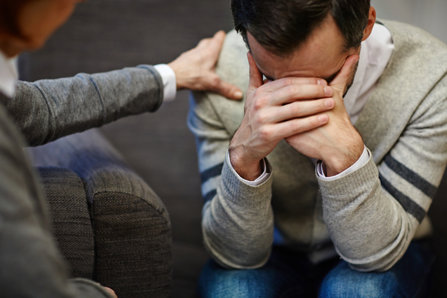Yet Another Urgent Reason to Help Addicted Parents
Suicide Attempts—Another Risk Factor for the Children of Addicted Parents

We have known for some time that it is harmful for children to grow up in households where one or more of the parents is using drugs and alcohol. There is a wealth of research data to back that up. And it’s a common sense point too. How could growing up in a household of drug use and heavy drinking have anything but a negative effect on children?
But it gets worse than that. New research data shows that children who grow up in the homes of addicted parents are more likely to attempt suicide than kids who grow up with sober parents. That makes the issue much more severe. We knew that kids who grew up in homes rife with addiction were more likely to use drugs themselves. We knew there were other, ongoing issues and underlying behavioral, personal, and mental difficulties that the children of addicts faced, but to learn that suicide is also more common among children raised in drug-rich environments is hugely concerning.
New Data Sheds Light on the Risk of Parents Using Drugs
Opioid use among adults is up, tremendously so. This problem has increased every year since just before the turn of the century. And in the last 15 years, suicide rates among young people in the U.S. have also increased dramatically.
The Center for Health Statistics at the University of Chicago looked for a link between adult substance abuse and adolescent suicide. Sure enough, there was a connection.
The Center for Health Statistics gathered data from 2010 to 2016. The data included information on 240,000 U.S. parents, all of whom between the ages of 30 to 50. Half of them had used opioid pharmaceuticals in the last year; half did not.
The same research project measured incidences of suicide attempts made by the 330,000 children of the 240,000 parents. The age range for these kids was 10 to 19.
The research told us the of the parents in the study group who used opioid drugs, 678 of their kids attempted suicide during the 2010 to 2016 study period. Of the parents who did not use drugs at all, 212 of their kids attempted suicide during the 2010 to 2016 study period.
“These findings demonstrate that opioid use by a parent or parents doubles the risk for suicidal behavior by their children…”

According to Dr. David Brent of the University of Pittsburgh, “These findings demonstrate that opioid use by a parent or parents doubles the risk for suicidal behavior by their children. The epidemics of adult opiate abuse and child suicidal behavior appear to be linked, and the disturbing upward trends in mortality due to opiates and due to child suicide may have common roots.”
This research appeared in a summarized form in a May 22, 2019, issue of U.S. News. To learn more about the growing epidemic of youth suicide in general, the Centers for Disease Control and Prevention has published information on that subject.
It’s Not Just Suicide
Suicide is the most alarming phenomenon among kids of drug-using parents. The fact that three times as many kids of drug-using parents attempted suicide as compared to kids of non-drug using parents is very concerning. But suicide is not the only phenomenon that appears in the kids of addicts.
“… More than 28 million Americans are children of alcoholics; nearly 11 million are under the age of 18. This figure is magnified by the countless number of others who are affected by parents who are impaired by other psychoactive drugs.”
According to the National Association for Children of Alcoholics, “Alcoholism and other drug addiction have genetic and environmental causes. Both have serious consequences for children who live in homes where parents are involved. More than 28 million Americans are children of alcoholics; nearly 11 million are under the age of 18. This figure is magnified by the countless number of others who are affected by parents who are impaired by other psychoactive drugs.”
The National Association for Children of Alcoholics created a full fact sheet of all the different ways in which young people tend to be affected by drug or alcohol-using parents. While suicide is not a point discussed in the fact sheet, there is a vast range of other, harmful effects that addicted parents have on their kids. For example, the majority of child welfare cases involve substance abuse on behalf of at least one of the parents. About 75 percent of child relocation cases cite substance abuse among the parents as being a critical reason for child relocation. Furthermore, also according to the NACOA, the children of addicts are four to nine times more likely than kids of sober parents to develop a substance abuse problem of their own.
Do Not Shame Parents, Help Them

When it works well and functions as it should, the traditional family unit of two parents and their children is the best environment for a child to grow up in. We need to respect and cherish such a household. We need to avoid shaming or stereotyping parents who struggle with addiction. If we punish parents or treat them as terrible people, they will never get better. When we punish and shame addict-parents, we are furthering that condition and harming their kids as a result. Don’t we want to help kids, not harm them?
If you know a family where one or more of the parents is using drugs and alcohol,the best thing you can do is help that parent or parents get into a drug and alcohol addiction treatment center. Residential rehab programs offer the best route for parents to get off drugs and to go back to being great parents.
Throwing parents in jail for using drugs around their kids might take the child out of the immediate danger of the drug-rich environment, but growing up in foster care is not a great solution either. A better solution would be for a family member or loved one to provide temporary childcare for the kid(s) while the parent(s) seek out help at a residential treatment center. Once Mom and Dad work through their habit and come out the other end clean and sober, they can begin to build a healthy, stable, pleasant, and loving home for their children.
Sources:
- https://www.usnews.com/news/health-news/articles/2019-05-22/kids-of-opioid-using-parents-may-be-more-likely-to-attempt-suicide
- https://www.cdc.gov/healthcommunication/toolstemplates/entertainmented/tips/suicideyouth.html
- http://www.nacoa.net/pdfs/addicted.pdf


 ®
®